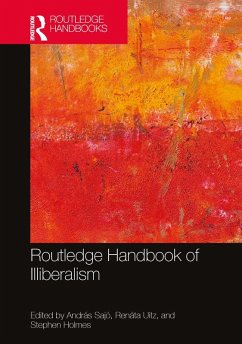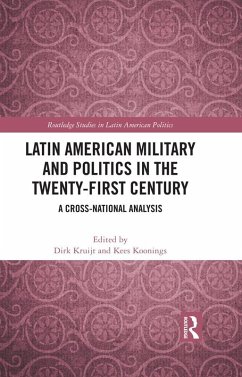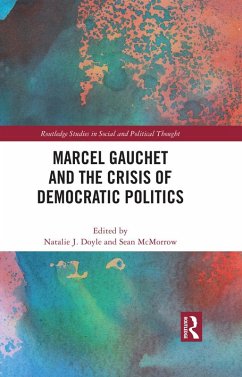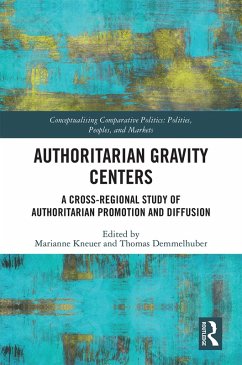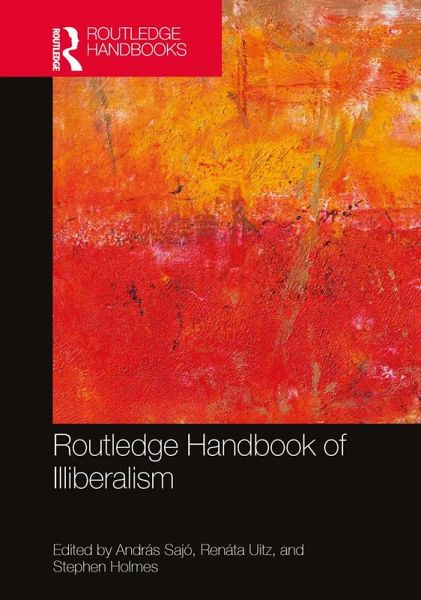
Routledge Handbook of Illiberalism (eBook, ePUB)
Versandkostenfrei!
Sofort per Download lieferbar
79,95 €
inkl. MwSt.
Weitere Ausgaben:

PAYBACK Punkte
40 °P sammeln!
The Routledge Handbook of IIliberalism is the first authoritative reference work dedicated to illiberalism as a complex social, political, cultural, legal, and mental phenomenon.Although illiberalism is most often discussed in political and constitutional terms, its study cannot be limited to such narrow frames. This Handbook comprises sixty individual chapters authored by an internationally recognized group of experts who present perspectives and viewpoints from a wide range of academic disciplines. Chapters are devoted to different facets of illiberalism, including the history of the idea an...
The Routledge Handbook of IIliberalism is the first authoritative reference work dedicated to illiberalism as a complex social, political, cultural, legal, and mental phenomenon.
Although illiberalism is most often discussed in political and constitutional terms, its study cannot be limited to such narrow frames. This Handbook comprises sixty individual chapters authored by an internationally recognized group of experts who present perspectives and viewpoints from a wide range of academic disciplines. Chapters are devoted to different facets of illiberalism, including the history of the idea and its competitors, its implications for the economy, society, government and the international order, and its contemporary iterations in representative countries and regions.
The Routledge Handbook of IIliberalism will form an important component of any library's holding; it will be of benefit as an academic reference, as well as being an indispensable resource for practitioners, among them journalists, policy makers and analysts, who wish to gain an informed understanding of this complex phenomenon.
Although illiberalism is most often discussed in political and constitutional terms, its study cannot be limited to such narrow frames. This Handbook comprises sixty individual chapters authored by an internationally recognized group of experts who present perspectives and viewpoints from a wide range of academic disciplines. Chapters are devoted to different facets of illiberalism, including the history of the idea and its competitors, its implications for the economy, society, government and the international order, and its contemporary iterations in representative countries and regions.
The Routledge Handbook of IIliberalism will form an important component of any library's holding; it will be of benefit as an academic reference, as well as being an indispensable resource for practitioners, among them journalists, policy makers and analysts, who wish to gain an informed understanding of this complex phenomenon.
Dieser Download kann aus rechtlichen Gründen nur mit Rechnungsadresse in A, B, BG, CY, CZ, D, DK, EW, E, FIN, F, GR, HR, H, IRL, I, LT, L, LR, M, NL, PL, P, R, S, SLO, SK ausgeliefert werden.




